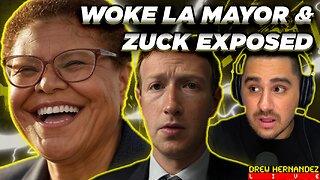Premium Only Content

The Science of Extreme Time Dilation in Interstellar
0:00 Introduction
1:08 Recap of Einstein's relativity
2:14 Gravitational redshift
4:46 Time dilation in Interstellar
6:27 One second on Miller's equals one day on Earth
8:32 The problem with this extreme time dilation
PS: Due to copyright restrictions, several music tracks used in this video had to be substituted with tracks from the YouTube audio library.
--------------------------------------------
Script:
We touch upon the fundamentals of this topic from our previous video, about Einstein’s relativity. You can check out the video here, but just to give you a brief summary, we can say the following.
Under the influence of a strong gravitational field, time slows down. So if you’re just hanging out near a massive object, you will experience the effect of time going slower.
But gravity isn’t the only thing that can warp time. According to another one of Einstein's theories, special relativity, time slows down for an object when it moves. Combining these two concepts together, we could consider this scenario.
Suppose that we walk up a flight of stairs. Our body is slowly moved away from earth, meaning that we will experience time going faster. But at the same time, since we are not stationary while going up, we should experience time going slower. So being farther from the pull of Earth's gravity causes our clock to tick faster, but moving “counteracts” this effect. Of course, this is all oversimplified.
Let’s consider two comparable cases. We have person A, floating nearby a massive object with a lot of gravity. And person B, just casually floating in an empty void of space.
Person A shines a green laser beam toward person B. Because light is a form of vibration, the laser beam has a color that corresponds to 600 trillion vib/s. Now light is also a form of energy, and as that beam of light comes out of that gravity of the massive object, it loses a lot of energy. This loss means that there’s a decrease in frequency.
So, by the time that beam of light reaches person B, its frequency will have decreased by some factor. That means that instead of the green light, at six hundred trillion vibrations a sec, person B gets only.. let’s say 10 billion vib/s. Which is a microwave radio beam. This phenomenon is called the gravitational redshift.
Individual wiggles don't just go anywhere and disappear. Since person A creates 600 trillion wiggles every sec, while person B only gets 10 billion every second, the only way this can happen is if one second on one astronaut’s clock is not the same as one second on the other astronaut.
In other words, it only takes one sec for person A to create those 600 trillion wiggles, but it will take 60,000 seconds, or nearly a day, for person B to receive them. So this is what happens. Our clocks run at wildly different rates. And by "clocks" I don't just mean mechanical or electronic devices, but also biological clocks, like your heart, your lungs, your brain, etc.
Person A takes a breath, takes another breath, and measures a few seconds between the two. For him, everything feels normal. Clocks tick the way they are supposed to. On the other hand person B, watching person A through a telescope, sees everything in slow motion, with several days passing between the two breaths.
So now revisiting this scene again from #Interstellar, you should get a better understanding as to why Cooper says he will be the same age as his daughter by the time he comes back from the mission.
According to Einstein’s special relativity, the greater the acceleration of an object, the slower it will move through time. On Earth, where time is slowed by only a few microseconds per day, gravity’s pull is modest. And at the surface of a black hole, time is slowed to a halt, where the gravity is so humongous that nothing can escape.
In the movie, Miller’s planet is depicted to be present in the warped space, very close to a black hole Gargantua. Gravity’s pull on Miller’s planet is enormous. So if we apply Einstein’s relativity here, we would know that Miller’s planet would experience time at a very slow rate. But here on Earth, gravity is at a modest rate. And the gravitational force of the sun is also a billion times weaker than Gargantua. So people on Earth “experience time” faster than that of the three astronauts on Miller’s planet.
-
 1:00:37
1:00:37
Trumpet Daily
19 hours ago $3.32 earnedThe Cause of ‘Natural’ Disasters - Trumpet Daily | Jan. 10, 2025
4.29K11 -
 33:41
33:41
PMG
10 hours agoHannah Faulkner and Haile McAnally | OMAHA YR RACE
1.27K2 -
 21:24
21:24
The Based Mother
1 day ago $0.03 earnedThis is not a drill - California is set on self-destruction.
1.27K5 -
 6:06:49
6:06:49
Sgt Wilky Plays
13 hours agoFirefight Friday
41.6K5 -
 5:03:49
5:03:49
Drew Hernandez
16 hours agoLA MAYOR PUSHED $49 MILL LAFD BUDGET CUT ONE WEEK BEFORE FIRES?
104K61 -
 2:52:04
2:52:04
Nobodies Gaming
11 hours ago $6.22 earnedNobodies Rumble Gaming TEST STREAM 2.0
63.8K3 -
 1:00:36
1:00:36
Talk Nerdy 2 Us
10 hours agoDigital Surveillance, TikTok Shutdowns & The Hackers They Don’t Want You to Know About!
51.7K2 -
 3:08:37
3:08:37
SpartakusLIVE
13 hours agoDelta Force || Tactical, Strategic, HARDCORE
57K2 -
 3:32:05
3:32:05
I_Came_With_Fire_Podcast
17 hours agoTRUMP GUILTY Verdict, LA Fires, New American EXPANSIONISM, and Cyber Truck Updates!!
33.5K13 -
 1:26:05
1:26:05
Glenn Greenwald
13 hours agoGOP Senators Demand Tulsi Support Domestic Surveillance To Be Confirmed; Group Tracks IDF War Criminals Around The World; System Pupdate: Pointer's Determination To Survive | SYSTEM UPDATE #387
144K93